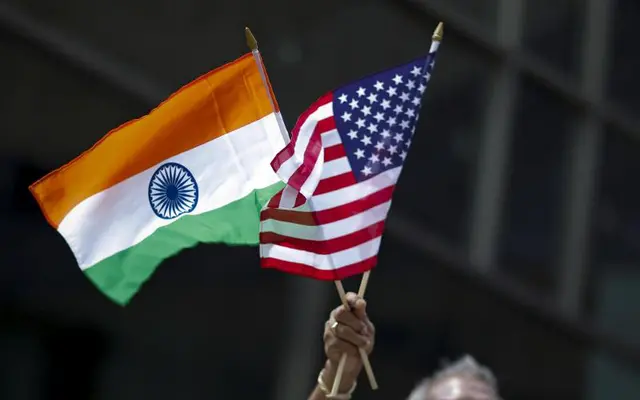Author: Prof. Engr. Zamir Ahmed Awan, Sinologist (ex-Diplomat), Editor, Analyst, Non-Resident Fellow of CCG (Center for China and Globalization), National University of Sciences and Technology (NUST), Islamabad, Pakistan. (E-mail: [email protected]).
American Secretary of Defense General (Retd.) Lloyd James Austin III has spoken on the issue of human rights in India during his meetings with Cabinet Ministers during his maiden state visit to India. An informed source said the issue was also discussed during his conversation with External Affairs Minister S. Jaishankar, which also covered a wide range of topics like the circumstances in the region.
"The Defense Secretary told that the world thinks us as the two largest democracies in the world, human rights and values are important to us, and we will lead with these values," said the source.
Earlier, talking to a select group of American and Indian media houses, Mr. Austin said he highlighted the violation of the Muslims' human rights in Assam with the Indian side. "I did have a discussion with other Cabinet members on this concern particularly," Mr. Austin was cited saying by the NDTV. He, however, explained that he "did not have an opportunity to talk to" Prime Minister Narendra Modi on the issue of human rights violations targeting minority communities.
"We have to keep in mind that India is our partner, a partner whose partnership we value. And I think partners requisite to be able to have those kinds of discussions. And unquestionably, we feel comfortable doing that. And you can have those deliberations in a significant way and make improvement," he said in a report that appeared on NDTV online.
To a query from the news channel whether the subject of erosion of democracy included in his discussions, Mr. Austin said, "You've heard President Biden say human rights and the rule of law are significant to the U.S. We always lead with our values. As a democracy, that's pretty important to us."
Human rights and the right to peaceful agitations have featured in India's relations with many countries, including the U.S., in recent months because of the crackdown on the farmers' protest. Mr. Austin was asked to discuss the reports of violations by Chief of the U.S. Senate Foreign Relations Committee Senator Robert Menendez, who emphasized that India-U.S. partnership in the 21st century must be grounded on "adherence to democratic values." India, he said, "has been a parting away from those values."
The Chittisinghpura Massacre
Earlier, on March 20, 2000, in the then President of the United States, Bill Clinton's official visit to India, 35 members of the Minority Sikh community in Indian Occupied Jammu, were gunned down Chittisinghpura village of Anantnag district of Kashmir.
The Indian Army claimed that it was the handiwork of the "Pakistan-backed terrorists of the Islamic Fundamentalist group Lashkar-e-Taiba."
The Indian Army's Rashtriya Rifles later claimed to kill five "foreign terrorists," which turned out to be locals, in what is termed the Pathribal Fake Encounter Case.
The economic times informed that "The CBI had in 2006 accused five men of the Rashtriya Rifles for allegedly killing five civilians, responsible for the massacre of 36 Sikhs at Chittisinghpura area of Anantnag district."
In 2017, Indian Retired Lt Gen KS Gill, who was part of the investigation, in an interview with Sikh News Express, told Journalist Jasneet Singh that the Indian Army was alleged in the massacre and the statement had been submitted to L.K.Advani was the Home Minister in India's National Democratic Alliance (NDA) government then.
As a matter of fact, India has crossed all records of human rights violations in humankind's history. Even the U.S., as a close ally, is worried and has expressed deep concerns. E.U. and U.N. also have similar remarks about India.
(ASIA PACIFIC DAILY)
 简体中文
简体中文

